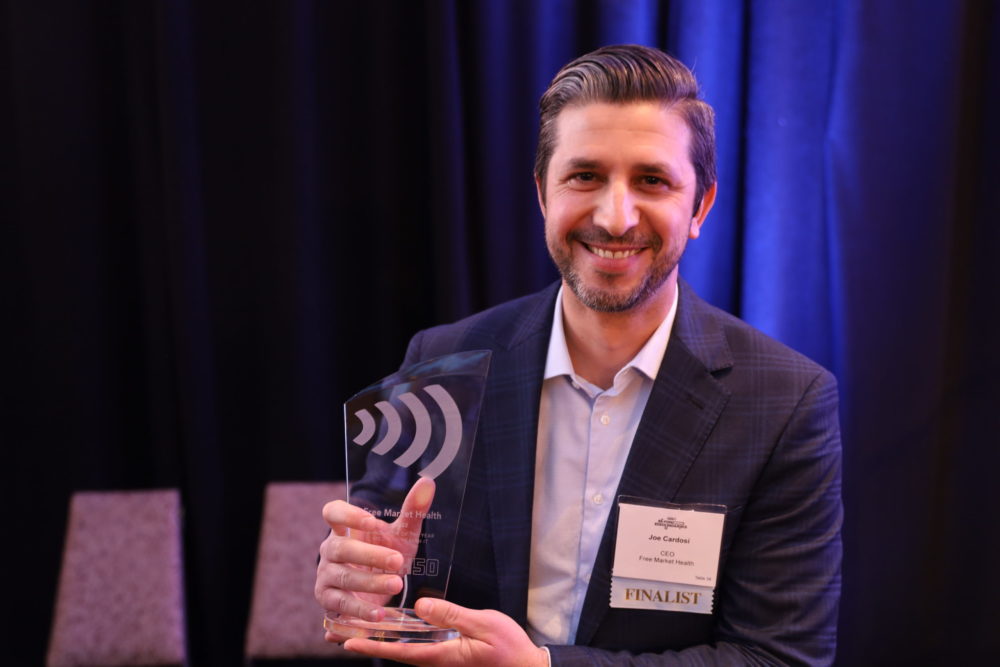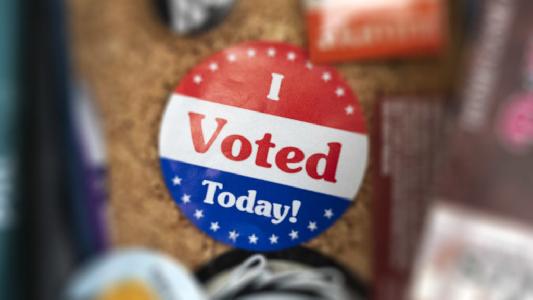For some patients, getting the medication they need is a little more complicated than a trip to Rite Aid or CVS. Strip District-based Free Market Health’s leaders want their platform to give patients who require specialty medications more options and, ideally, a shorter wait time.
Following a $13.5 million Series A in April 2022, the company’s leaders say they’ve seen a steady year of growth.
Free Market Health CTO Mark Conklin told Technical.ly its platform to connect patients to the best-fit speciality pharmacies for their needs to get their prescriptions filled in a cost-effective manner.
“The specialty pharmacy space is far more complex than your normal getting-an-antibiotic-[from]-your-corner-Walgreens” trip, Conklin said. Where specialty pharmacies differ from other pharmacies is that they carry rare medications which are often not kept in stock the way common medications are. This leads to disruptions in patients accessing the medications they need. Free Market Health, the CTO said, tries to reduce the waiting time and confusion by ensuring that patients, specialty pharmacies and payers are involved in the process together.
Patients who require specialty medications are often those who live with rare or complex chronic conditions such as cancer, HIV, rheumatoid arthritis or hemophilia.
Free Market Health has 130 pharmacies using its platform, and on the customer side, founder and CEO Joe Cardosi said the platform’s volume has tripled over the past year — including a deal with Highmark launched in July 2021. The company also won in Pittsburgh Technology Council’s Tech 50 Awards in the MedTech/Health IT category in December.

Free Market Health’s Joe Cardosi. (Photo courtesy PTC)
Cardosi attributed the increase in customers to the ease of navigating the platform in a world where going through the healthcare system can come with headaches.
“We tried to make the experience for a patient getting started on a specialty drug as efficient and seamless and stress-free as possible,” Cardosi said. “That’s our care-driven marketplace [working] directly with the payers and directly with the pharmacies, and indirectly with some of our integration partners that do other things like prior authorization, or claims processing within the pharmacy ecosystem.”
In addition to providing referrals, the platform allows its users to access a value-based reimbursement solution along with care incentives.
Free Health Market counts 51 employees based in Pittsburgh, Vermont, San Diego and Nashville most of whom work in technology or product development roles. While the company has its share of out-of-state employees, Cardosi — a Duquesne University alumni — said it was important to make Pittsburgh Free Market Health’s HQ, given the leadership role the city took on in specialty pharmacies in the 1990s.
In 1992, one of the first specialty pharmacies, Stadtlanders Pharmacy, set up shop in Pittsburgh to serve transplant recipients and patients with HIV.
“Pittsburgh is a really unique place as it relates to specialty pharmacies,” Cardosi said. “There’s a lot of talent here and folks that have been in key leadership roles or started companies, especially the pharmacy industry. So [it’s] cool to have started Free Market Health in Pittsburgh, the birthplace of specialty pharmacy.”
The company’s 2022 Series A was primarily used to scale its platform, said the CEO, who emphasized that beyond growth for growth’s sake, it’s important to remember the mission of the company: to help patients with chronic illnesses access their treatments without delays and uncertainty.
“It’s a complicated, complex, and fragmented experience when a loved one gets diagnosed with a condition like multiple sclerosis, or cancer, or some rare disease that requires a specialty drug,” Cardosi said. “That is overwhelming and a burden. Then when you have to be a patient in this really complex specialty drug ecosystem, we’re delivering a solution to payers and pharmacies — but at the end it’s really for patients who just found out they need a specialty drug.”
Atiya Irvin-Mitchell is a 2022-2024 corps member for Report for America, an initiative of The Groundtruth Project that pairs young journalists with local newsrooms. This position is supported by the Heinz Endowments.Before you go...
Please consider supporting Technical.ly to keep our independent journalism strong. Unlike most business-focused media outlets, we don’t have a paywall. Instead, we count on your personal and organizational support.
Join our growing Slack community
Join 5,000 tech professionals and entrepreneurs in our community Slack today!






